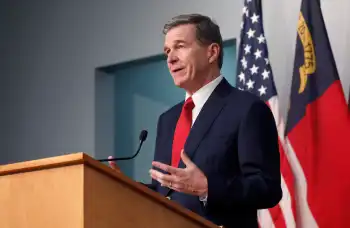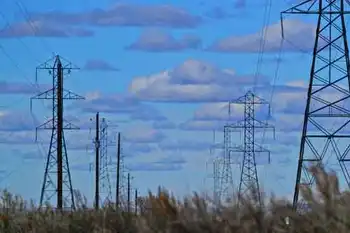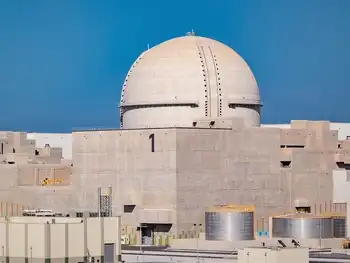U.S. solar energy industry blasts government move
By Reuters
Protective Relay Training - Basic
Our customized live online or in‑person group training can be delivered to your staff at your location.

- Live Online
- 12 hours Instructor-led
- Group Training Available
The Bureau of Land Management announced the freeze a month ago, saying it would conduct an extensive study looking at the environmental, social and economic impacts of solar energy development.
During the 22-month study, the agency will not consider any new proposals for solar energy developments on public land in Arizona, California, Colorado, Nevada, New Mexico or Utah.
Fred Morse, senior advisor for U.S. operations at Abengoa Solar, a Spanish company with a solar plant in development in Arizona, said the moratorium could hurt many companies in the burgeoning U.S. industry.
Companies could face hefty fines if they don't deliver on previously signed agreements to supply power, and a blanket freeze on the industry is a mistake, he said.
"All companies will be hurt by this freeze if they have a project (in the works)," Morse said.
Before the freeze went into effect at the end of May, the government had received approximately 130 applications for development on over one million acres of land, said Linda Resseguie, the Bureau of Land Management's project manager for the study.
"We are going to be working with the 130 applications that we have," Resseguie told Reuters. "It seemed best to us not to continue to build on that until we more fully understand which public lands are best suited for solar energy development."
The applications currently being looked at by the Bureau of Land Management have the potential to generate 70 billion watts of electricity, enough energy to power about 20 million homes in the United States, Resseguie said.
At a time of record high gasoline prices and calls from the presumptive presidential candidates of both major parties for development of energy alternatives to oil, solar industry proponents attacked the federal agency's freeze.
"We think it's ludicrous that the BLM (Bureau of Land Management) will put a moratorium on new projects when they haven't processed a single one," Rhone Resch, president of the Solar Energy Industry Association, told reporters during a conference call to mark the opening of a new solar manufacturing plant in Las Vegas, Nevada.
"There are 80 million acres on U.S. land leased to the oil and gas industry, and not one acre for solar."
The government freeze on new applications showed a "big disconnect" from public support for solar power, Resch said.
In the same call, Robert Fishman, chief executive of privately held Ausra, a solar thermal power developer headquartered in Palo Alto, California, said a recent poll showed 94 percent of Americans favor solar power development to help ease pollution and cut energy costs.
Ausra opened its first U.S.-based manufacturing plant for reflectors and other components of its solar plants in Las Vegas. Ausra last November announced plans to build a 177-megawatt solar farm in central California for PG&E Corp.
"The BLM is just quitting," said Fishman. "What they should be doing is staffing up and seeing how they are going to process these applications."
The agency says the benefits of the study will outweigh the potential costs to some companies.
"We think the program will be better for it in the end," Resseguie said.
Morse said he hoped the agency would reconsider the blanket policy in favor of a program that would allow what he called "real" projects - those where long-term agreements to supply power have already been signed - to be evaluated.
The Bureau of Land Management, an agency of the Interior Department, controls 258 million acres of land, or about 13 percent of the total surface land in the country, primarily in Western states. The sunny desert land that makes up a large portion of the six states is the ideal terrain for solar energy development.











